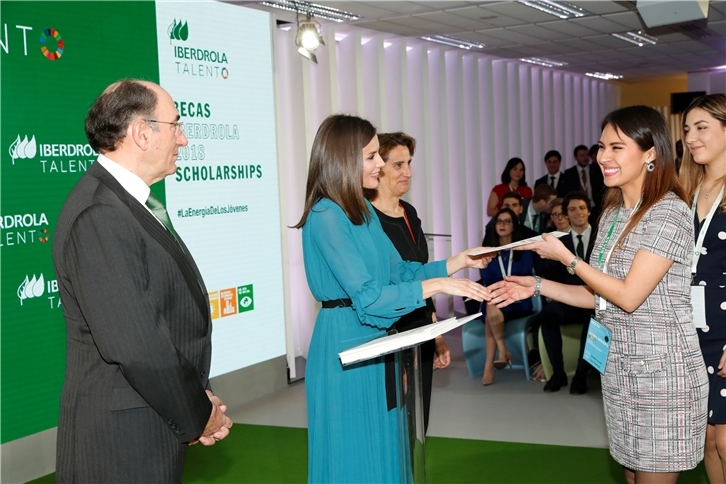News
In a week's time, the application period will close for grants to be awarded from a €400,000 fund aimed at the renewable energy, environmental and climate change sectors
Time is running out for young researchers to apply for Iberdrola grants relating to the energy of the future
- Through its foundation in Spain, Iberdrola is supporting research as a tool for generating knowledge and innovation to contribute to the development of a sustainable energy model
- Since 2011, Fundación Iberdrola España has allocated over €3m to developing 180 researchers
The call for Iberdrola research grant applications for the 2020-2021 academic year, which is managed through the company's foundation, is about to expire. With total funds worth 400,000 euros available, the registration process will end on 15 May. Fundación Iberdrola España will then choose up to 20 research projects related to renewable energy, environmental protection, the fight against climate change, and the efficiency of the energy system.
With this initiative, the organisation seeks to promote research in areas such as energy and environmental sustainability, and, in particular, innovation in modern energy sources and the fight against climate change. The aim is to promote an energy transition capable of improving people's quality of life and providing development opportunities for communities.
All those interested can consult the terms and conditions and complete the application form on the Fundación Iberdrola España website. The grants will be for a maximum amount of €20,000 per project and will last for a year.
As well as candidates' academic qualifications and language ability, other factors such as their previous experience and references and the research project's area of interest will be taken into account when selecting successful candidates. Once this pre-selection stage is complete, the Foundation will interview candidates personally to assess their individual attributes, overall preparation and motivation. Applicants must have the backing of the team and centre at which they intend to undertake the research, which may be any university or research centre in Spain.
Since 2011, Fundación Iberdrola España has set aside over €3m to fund the development of 180 researchers at prestigious universities and research centres.
The energy system of the future - a top priority
This time around, the projects must focus on the principle technologies associated with future energy systems, as characterised by decarbonisation and electrification.
They must, therefore, consider the main technological innovations in areas such as:
- Clean generation: photovoltaic technology, advanced wind generation technologies and other renewable energy sources.
- Electricity networks and systems: transmission and distribution technologies, advanced technologies for energy storage and smart grids.
- Customers and demand: management of demand and distributed energy resources.
- New vectors for the electrification of the economy: electric vehicles and energy efficiency.
- Cross-sector areas: digitalisation and new information technologies in the electricity sector, sustainable innovation in access to energy and in the fight against climate change to overcome poverty; the circular economy and recycling, environmental protection and biodiversity.
Iberdrola, supporting excellence in training
This new invitation to apply for research grants is part of Iberdrola's commitment to excellence in training, and its support for research as an optimum tool for generating knowledge and innovation to contribute to the development of a sustainable energy model.
Fundación Iberdrola collaborates with grant programmes from other prestigious institutions such as the Fulbright Commission, which every year offers Iberdrola-Fulbright grants; the Carolina Foundation, with a programme for Mexican and Brazilian students; and the restoration workshops at the National Prado Museum and the Bilbao Museum of Fine Arts, which give future specialists the chance to complete their training on the conservation and restoration programmes run by these institutions.







